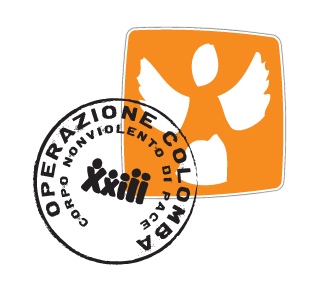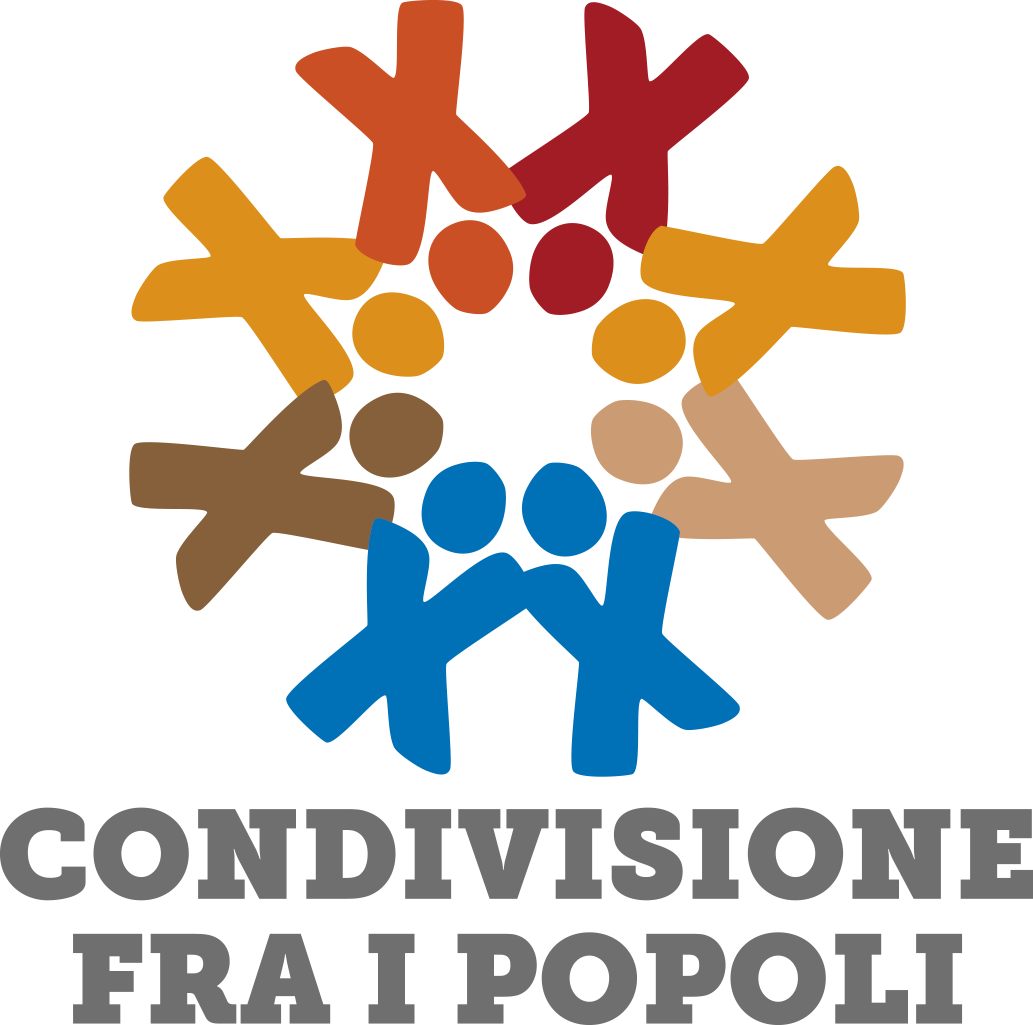We have been living in Ukraine since the beginning of the war, together with peolple escaping from bombings, initially in Lviv and Odessa, then in the underground shelters of Mykolaïv; now at the front in Kherson.
The words and music of this song were born living with people who respond to war with solidarity and gain courage by living together.
UKRAINE EMERGENCY
News
We want to do more.

I left to try to give a concrete Peace response to the war.
Here, after more than a year, young people are tired: they were resisting and looking for a different way but now they are giving up, they think it's not working, they don't see great results and they believe that the only thing left to do is to enlist.
To fight, so that the war ends as soon as possible or just to avoid being pervaded by a sense of futility.
So, I asked myself what the next step was, how to help them not to give up.
What concrete step can they take against the war?
Actually, they are already doing it, they are taking big steps against violence, but they need to be told!
The part that is missing is mine.
We alone do not see things; the other people make us see.I have to tell their life, and tell them that I see it, that their resistance is the great cry that they want to live and they do not want war.
They are living and not fighting with weapons, and that is right!
They are living by sharing what little they have in their destroyed villages.
They are seeking Peace, they have already created it, they are living it.
Video interview with Vika
Vika is 18 years old. We met her in Mykolaiv two months ago at the community shelter where we live. She arrived from Kherson with her mother.
I don’t want to become what they’ve done to me

Today our meeting with Andrej begins with smiles and a piece of cake. He is a volunteer from the local Caritas who decided to help his people from the beginning of the war, even though he expected to do something else in his life.
We went to meet him because we wanted to tell him that we are not only here for them, but WITH them. In a city under attack, we are volunteers who are working nonstop to help civilians in all the ways they can since many months: from distributing food aid to delivering warm clothes in view of the gelid winter that is coming.
Suddenly, during the conversation, he is pleasantly surprised when we speak some words in Ukrainian and Russian languages. So, with his permission, we ask him some personal questions like why most people in these areas of the country continue to speak Russian.
"Russian is my mother language. I was born in Odessa but my grandparents have Russian origins, like "many" people in Ukraine. Since the war’s outbreak in 2014, we have started to use more the Ukrainian language, which has been chosen as the only official language in schools".
He goes on telling us that it is impossible to have such an immediate change between the two languages because they are not at all the same, although they are similar. From the beginning of the war until today, many people - especially in the western regions - began to distance themselves from Russia and to speak Ukrainian.
Babushka Vera
 She was introduced as “Babushka Vera” and immediately she was “grandmother Vera” for us too.
She was introduced as “Babushka Vera” and immediately she was “grandmother Vera” for us too.
A frail old woman from Mykolaiv, very thin, with white hair.
She was the first person we used to say good morning to when we woke up and goodnight before sleeping. As Vera, like us, slept in the basement shelter.
She had decided not to leave despite the war, because that city was also her home.
So, every night around six, she used to come to the shelter.
Maybe because finding ourselves and being together, the bombs that fell at night seemed less scary.
Or, maybe because, despite the great fear, she was not alone.
She had worn-out green plastic slippers that she left under her bed/sofa every day.
Who knows if they are still there.
Vera loved us!
She used to smile at us, always glad to see us, she hugged us and in the evening she used to chat and joke with us.
Once her son came to visit her, we saw her sitting in the backyard with her granddaughter. Who knows what she was talking about.

 OPERAZIONE COLOMBA
OPERAZIONE COLOMBA
